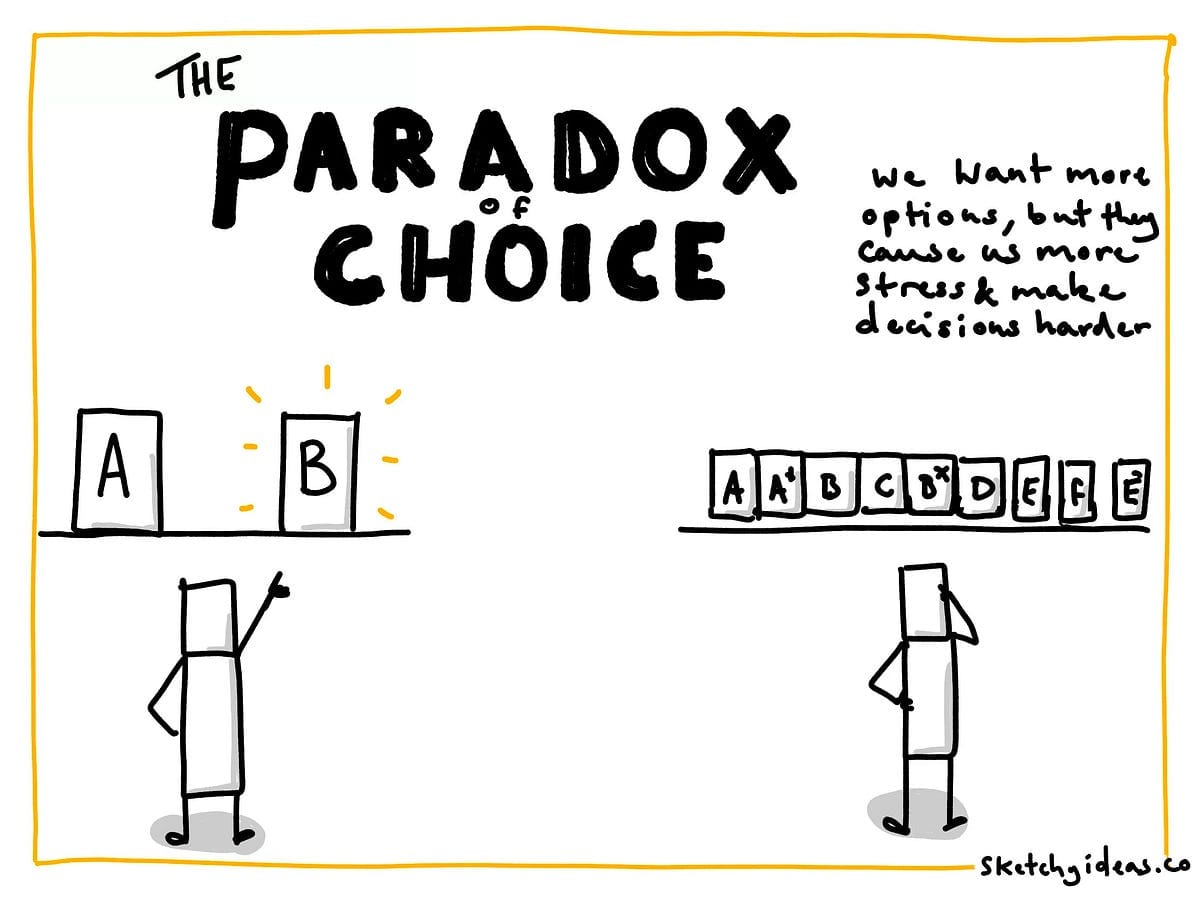The Paradox of Choice
Notes on Barry Schwartz's Paradox of Choice. This post is part of a series where I review what I learned from each book I read.

More choice is paradoxically worse for us, mostly because we will hesitate and feel less satisfied with the end result. Moreover, you're less likely to even make a choice when you have too many options.
Key Ideas
- Maximizers vs Satisfiers: satisfying does not mean having low standards; it's like a DFS algorithm that stops once it finds something that matches its criteria
The alternative to maximizing is to be a satisficer. To satisfice is to settle for something that is good enough and not worry about the possibility that there might be something better.
- With more options, you're more likely to regret not picking the other choice
- Second-guessing choices undermine the value of what you picked
- Constant decision-making drains mental energy; reducing choices helps conserve willpower.
Applications
- Set up ground rules so that later decisions will be a no-brainer. For example, you can decide never to do more than 5 shots of alcohol 😭
- Limit your choices to prevent decision paralysis
- Automate decisions. For example, schedule out your meals for the week
- Make final purchases (that satisfy your requirements). Don't try looking for things you can return
Quotes
Learning to choose is hard. Learning to choose well is harder. And learning to choose well in a world of unlimited possibilities is harder still, perhaps too hard.
Conclusion
This book shifts your perspective on decision-making, which you'll do a lot every day. I probably subconsciously use these lessons a lot, so I highly recommend it. My friend Mason also recommended the book How to Not Die Alone, which feels like a wrapper for this book but in the context of dating (not entirely sure though, since I'm only on the first chapter).
